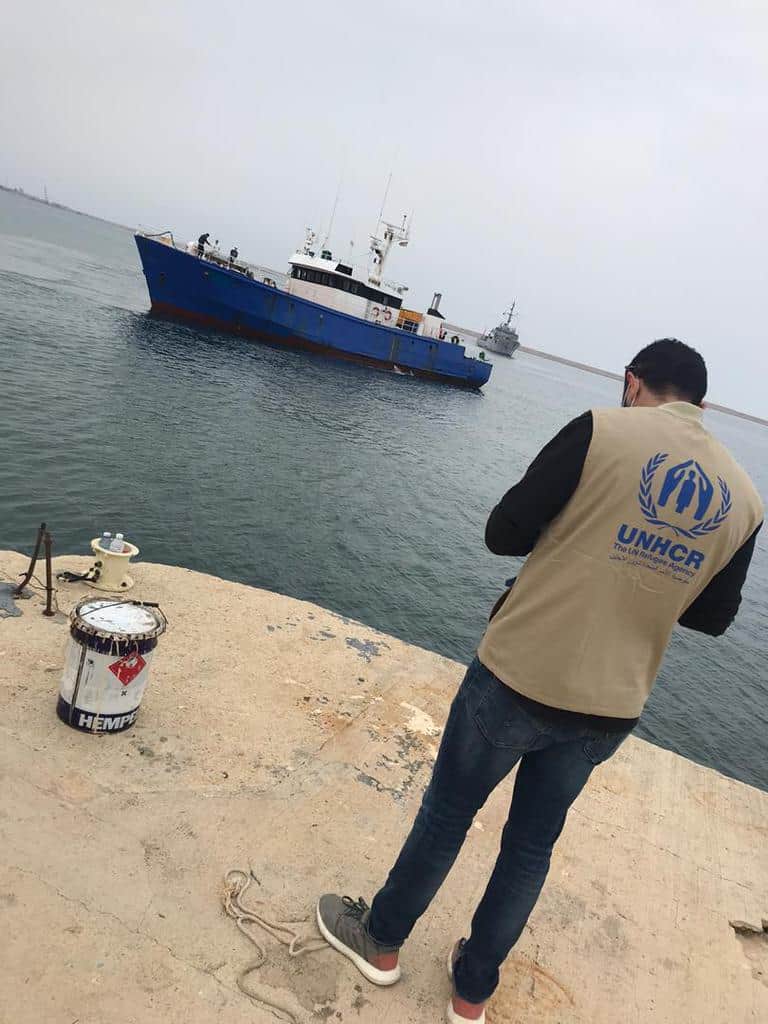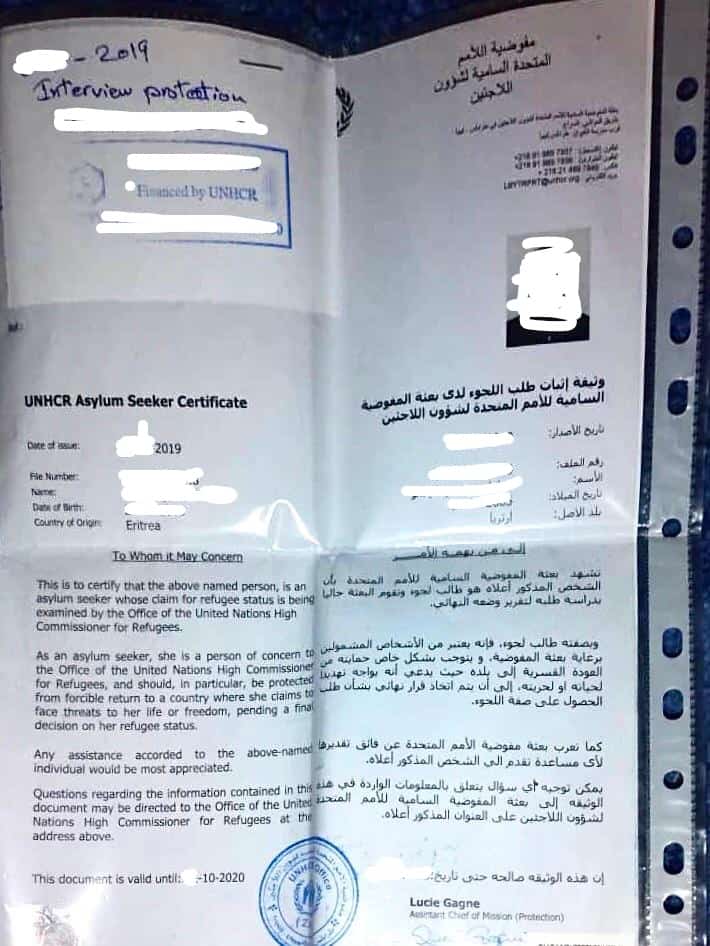
The United Nations High Commissioner for Refugees had granted migrants aboard the boat illegally pushed back to Libya protection pending a review of their application for asylum, this website can confirm.
The image shown is of one of several valid certificates seen by this website that were issued by the UNHCR to migrants that are currently being held in the Tarik al Sikka concentration camp in Libya. Malta would have been obliged to take into account these documents had the migrants been allowed to make land.

Instead the boat they were in was abandoned adrift in Malta’s search and rescue area while 12 of the passengers died of thirst, exhaustion or drowning. The survivors including the holder of the certificate shown here whose identity is being covered by this website for their protection were all illegally pushed back to Libya in a mission described in detail by the AFM commander Jeffrey Curmi in testimony given to Magistrate Joe Mifsud.
In that testimony Curmi says the migrants were taken on board a fishing vessel acting on his instructions. The vessel proceeded to Tripoli where they were taken to a war-torn country, landing on a harbour that had just been shelled by mortar fire hours before their arrival.
The certificates issued by the UNHCR say the holders “is a person of concern to the Officer of the UN High Commissioner for Refugees and should, in particular, be protected from forcible return to a country where he or she claims to face threats to his or her life or freedom.”
Several of the certificates seen by this website show the holders to be Eritreans.
Since 1993 Eritrea has banned elections, free press and political opposition. Upon finishing school every boy and girl are forced to join the military for an indefinite time. The country exists in a constant threat of renewed hostility with neighbouring arch-enemy Ethiopia. There are four religions that are permitted in Eritrea. All other religious minorities are persecuted. Food insecurity and malnutrition are pervasive and permanent. Three out of four Eritreans have no access to clean water. When it does not rain, crops fail and starvation follows.
Some would consider these as reasons to leave Eritrea and avoid going back.
When the Maltese government ordered that these migrants are sent back to Libya without having their applications for asylum taken into account, it broke its obligations under international covenants protecting refugees universally.
The inquiry into this incident conducted by Magistrate Joe Mifsud refused to attempt to get in touch with these migrants who were also eye-witnesses of the slow and cruel deaths of 12 of their co-passengers. The inquiry cited unspecific difficulties in contacting the migrants. The magistrate also dismissed out of hand a recommendation to grant the migrants a special visa to come to Malta to provide testimony in the inquiry.
In his inquiry, Magistrate Joe Mifsud, who was presumably unaware of the migrants’ status of asylum-seekers under international law, succinctly described the illegal pushback of the migrants to Libya as a “suċċess”.